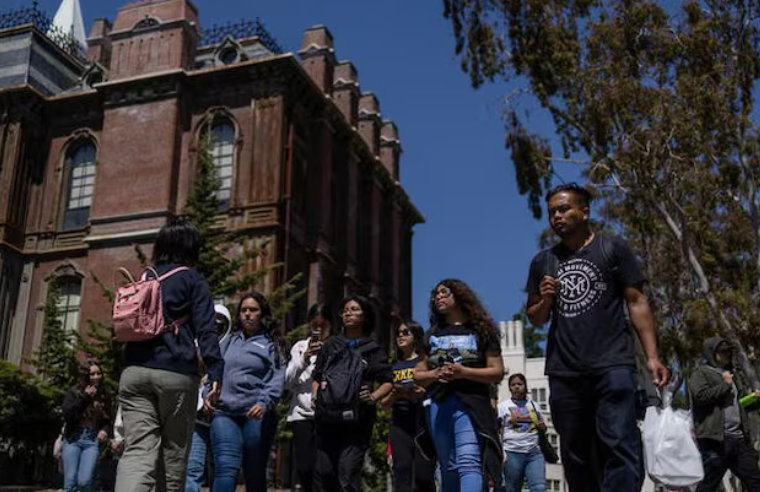A growing number of law schools are adding courses and degree programs in artificial intelligence to meet employer demand and capitalize on the flourishing AI industry. More than half of law schools now offer classes on AI, according to a recent American Bar Association survey, with the number of these courses accelerating since ChatGPT’s debut in November 2022. At least two law schools are launching special degree programs focused on AI.
Besides gaining a marketing boost by offering trendy AI courses and programs, law schools are also responding to legal employers who want lawyers with AI knowledge. Arizona State University Sandra Day O’Connor College of Law will offer an artificial intelligence specialization this year through its existing law, science, and technology certificate program, which students can receive after completing a curriculum of tech-related courses at no additional cost.
Meanwhile, the University of California Berkeley School of Law will begin accepting applications on August 1 for a yearlong, part-time advanced law degree program designed to prepare lawyers to counsel clients on AI, which will cost about $73,000. Despite AI’s status as a rapidly evolving $5 billion industry, the lifespan of focused AI programs may be short, as law schools fully integrate AI into their regular curriculums, according to several law firm recruiters.
Many of the AI classes reported in the survey center on how to use the technology in legal practice. Others have a narrower focus, such as using AI in litigation and the ethics of the technology. Some law schools have also developed centers or research initiatives devoted to AI and its impact on the legal system. For example, Vanderbilt Law School launched its Vanderbilt AI Law Lab in November to find ways for AI to improve the legal system and make it more accessible. Harvard’s Berkman Klein Center for Internet and Society launched a project on Artificial Intelligence and the Law in July, led by law professors Cass Sunstein and Oren Bar-Gill.
Legal employers express a strong appetite for lawyers who can use AI in their practices and counsel clients about it. Snell & Wilmer partner Tony Caldwell, co-head of the firm’s technology transactions practice, said a solid understanding of AI and the ability to leverage it is a “differentiator” for new hires. His firm uses AI for various tasks, including proofreading, e-discovery, and drafting client emails. Lauren Symington, chief talent officer at law firm Lewis Roca, said concentrations or degrees in AI like those planned by ASU and Berkeley would pique her interest on a resume.
ASU law professor Gary Marchant said AI training for lawyers is inevitable. “I estimate that within five years, it will no longer be possible to be a successful lawyer without using AI,” he said.

